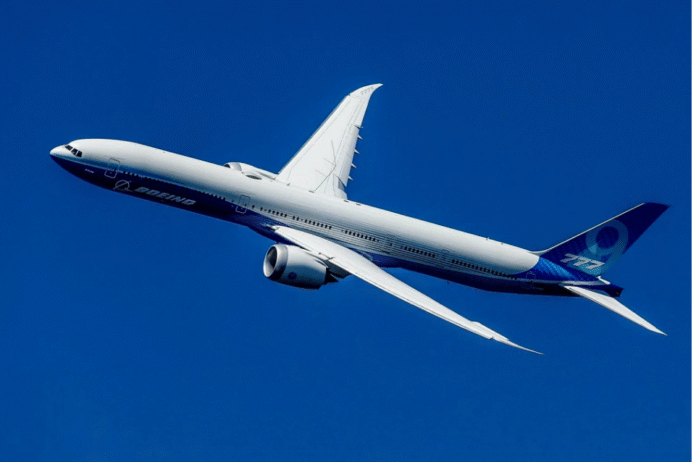Bangladesh has secured a major reduction in U.S. tariffs—from 35% to 20%—in what the interim government is calling a landmark diplomatic success. The deal, reached after high-level negotiations in Washington, offers critical relief to the country’s export-driven economy, especially its embattled garment sector. However, it comes with substantial economic commitments and growing questions about the broader strategic implications of Dhaka’s deepening ties with Washington.
Under the agreement, Bangladesh has committed to purchasing 25 Boeing aircraft, importing 700,000 tonnes of wheat annually, and increasing imports of U.S.-origin cotton, LNG, chemicals, pharmaceuticals, and capital machinery. Officials say these steps aim to reduce the bilateral trade imbalance, which is currently tilted in Bangladesh’s favor by over $6 billion.

“We welcome the tariff relief,” said a senior trade analyst who requested anonymity. “But the scope and speed of economic concessions raise the question—were there other, less visible assurances involved?”
Boeing Deal at the Heart of the Package
The most high-profile component of the deal is the proposed acquisition of 25 Boeing aircraft at an estimated cost of $6 billion. Commerce Secretary Mahbubur Rahman confirmed the aircraft purchase is being included in trade balance negotiations and would be implemented in phases. Biman Bangladesh Airlines, which currently operates 19 aircraft—including 14 Boeings—is reviewing the proposal.
Aviation analysts have responded with caution. Retired Wing Commander and aviation expert ATM Nazrul Islam said, “Buying planes to offset a trade deficit is not a sustainable approach. The airline, not the government, should lead such deals based on demand projections, not diplomatic necessity.”
Islam also questioned the strategic wisdom of depending exclusively on Boeing, suggesting a diversified fleet—such as including Airbus aircraft—could offer better pricing and operational flexibility.
It is noteworthy that Biman also has an existing Memorandum of Understanding (MoU) with Airbus, signed in 2023 under the previous administration, for the potential purchase of 10 aircraft. That proposal remains under review.
Strategic Speculation and Calls for Transparency
Beyond economics, the scale of Bangladesh’s commitments—especially the Boeing deal—has sparked speculation about possible non-economic dimensions to the agreement. Policy observers are asking whether the negotiations might include tacit strategic alignments, such as the use of Bangladeshi maritime areas for military or logistical purposes.
Concerns have also surfaced about potential implications for the Bay of Bengal, including speculative claims about access to Saint Martin’s Island or the possibility of supply corridors to armed groups across the Myanmar border. While there is no official confirmation of any such arrangements, analysts and former diplomats are urging transparency.
“Any hidden clauses—whether related to defense, logistics, or geopolitical influence—must be brought to light and scrutinized in the national interest,” said a former diplomat, speaking anonymously.
Commerce Adviser Sk. Bashir Uddin has dismissed such concerns, reiterating that the tariff reduction strengthens Bangladesh’s trade position and was achieved through standard economic negotiation. Chief Adviser Prof. Muhammad Yunus hailed the agreement as a “decisive diplomatic breakthrough.”
Economic Caution Amid Diplomatic Optimism
While garment exporters have welcomed the tariff reduction, industry leaders are wary of potential long-term costs. Mahmud Hasan Khan Babu, president of the Bangladesh Garment Manufacturers and Exporters Association (BGMEA), noted that even with the reduction, overall duties remain high. “After the 37% tariff threat in April, we were nearing collapse. This revised rate gives us breathing space, but profitability challenges remain.”
Former World Bank economist Zahid Hussain stressed that while the deal is a positive step, sustainable growth requires improving governance, labor rights, and the business environment—areas still under international scrutiny.
Meanwhile, Dhaka’s trade delegation continues its third round of talks in Washington, aiming to bring the tariff rate down further to 18%—comparable to recent arrangements with India and Indonesia.
As Bangladesh maneuvers through a period of political transition under an unelected interim government, public scrutiny over major international agreements remains critical. The question now facing the nation is whether this tariff relief is a true win—or the beginning of deeper economic and strategic entanglements.


